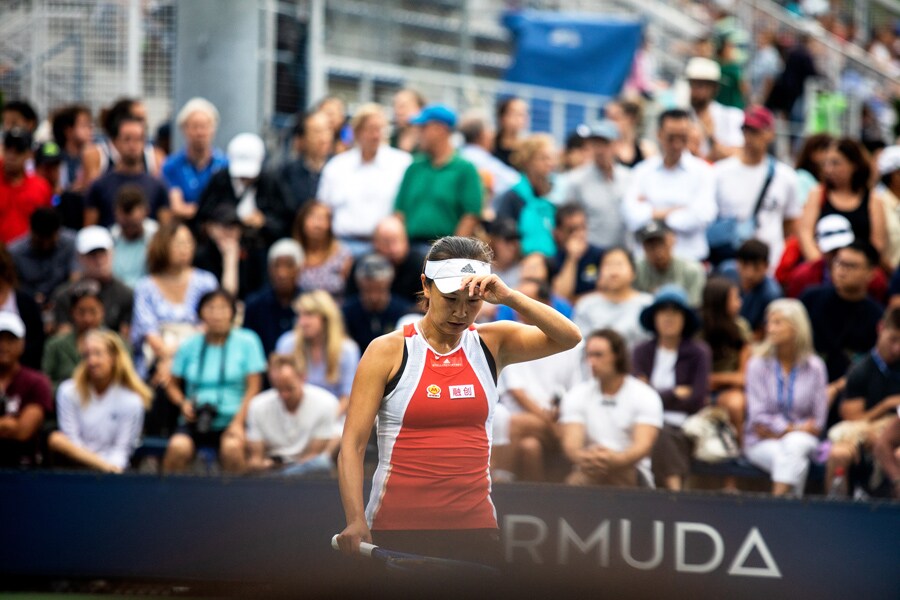
China's silence on Peng Shuai shows the limits of Beijing's propaganda
On China's social media platforms and other digital public squares, the censors' meticulous work has left almost no sign that Peng had ever accused Zhang Gaoli, a former vice premier, of sexual assault
 Peng Shuai of China during a U.S. Open qualifying match against in Queens on Aug. 23, 2019. Within China, the tennis star Peng Shuai’s #MeToo allegations have been systematically purged from social media. (Demetrius Freeman/The New York Times)
Peng Shuai of China during a U.S. Open qualifying match against in Queens on Aug. 23, 2019. Within China, the tennis star Peng Shuai’s #MeToo allegations have been systematically purged from social media. (Demetrius Freeman/The New York Times)
When Chinese tennis star Peng Shuai accused a former top leader of sexual assault in November, authorities turned to a tried-and-true strategy. At home, the country’s censors scrubbed away any mention of the allegations. Abroad, a few state-affiliated journalists focused narrowly on trying to quash concerns about Peng’s safety.
Beijing seems to be relying on a two-pronged approach of maintaining the silence and waiting for the world to move on. The approach suggests that the country’s sprawling propaganda apparatus has limited options for shifting the narrative without drawing more attention to the uncomfortable allegations Beijing hopes would just disappear.
On China’s social media platforms and other digital public squares, the censors’ meticulous work has left almost no sign that Peng had ever accused Zhang Gaoli, a former vice premier, of sexual assault. Like a museum to a previous reality, her social media account remains, without new updates or comments.
These tactics have worked for China in the past, at least at home. In recent years, officials have relied on heavy censorship and a nationalistic narrative of Western meddling to deflect blame for issues including the outbreak of COVID-19 to human rights abuses in Xinjiang.
This time, though, the #MeToo accusation from a lauded and patriotic athlete implicating a top leader has no simple solution from Beijing’s propaganda toolbox. Any new narrative would most likely have to acknowledge the allegations in the first place and require the approval of top Chinese leaders.
©2019 New York Times News Service







